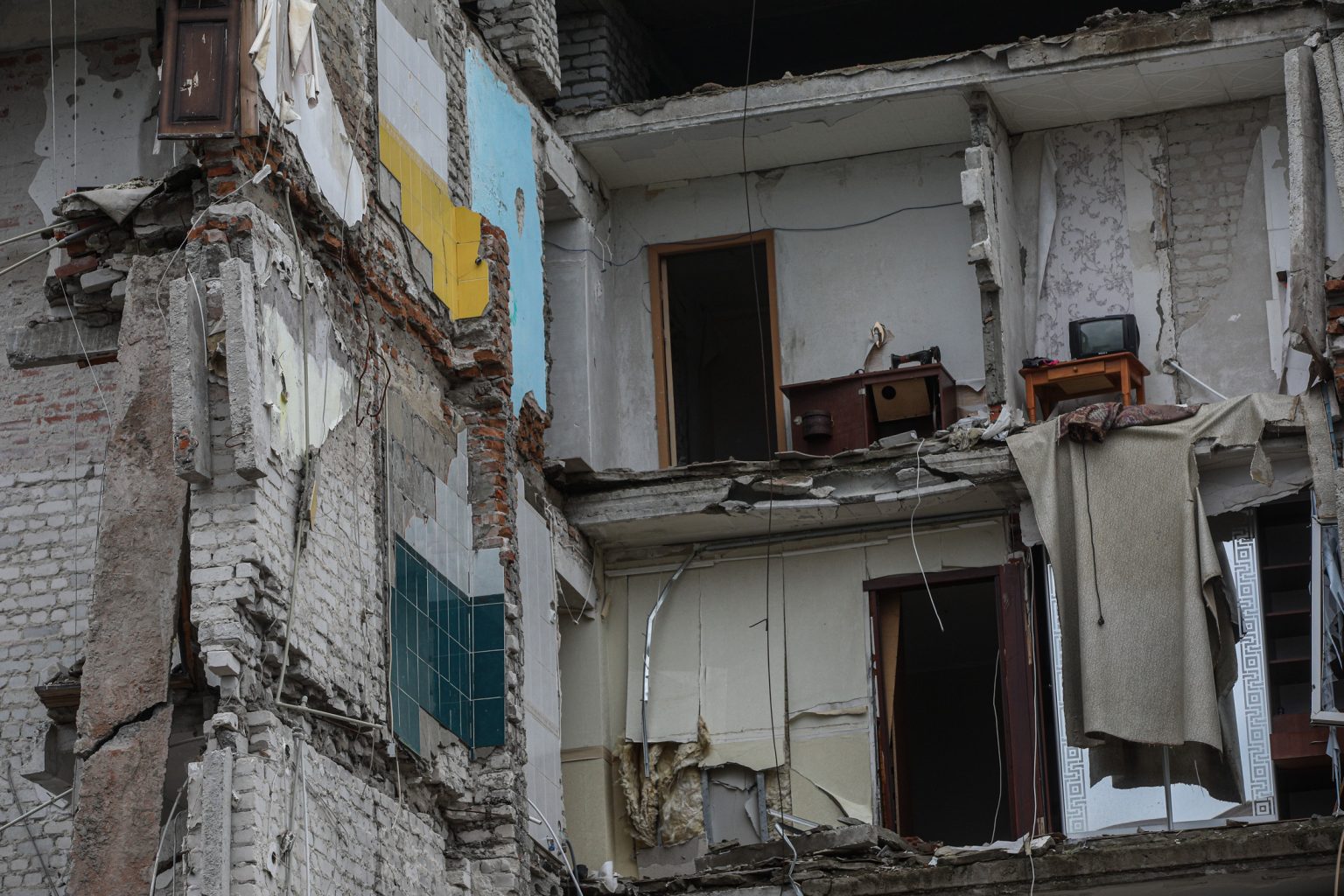Ukrainians whose property has been damaged or destroyed by Russia can now apply for compensation through an international digital register established by the Ukrainian government. The register, accessible through Ukraine’s e-governance mobile application Diia, will serve as the basis for future reparations from Russia. The cost of Ukraine’s post-war recovery and reconstruction has been estimated at $486 billion, with $300 billion of the Russian Central Bank’s assets frozen in the West. The G7 nations have pledged to keep Russian assets frozen until Moscow pays war reparations to Ukraine. The digital register on Diia allows Ukrainian property owners to submit evidence of damage to their homes, apartments, or country houses. The government plans to expand the registry to include claims related to forced displacement, damage to life, health, torture, and sexual violence. Businesses and the state will also be able to submit damage claims in the future.
The United Kingdom has offered to loan all the assets of the Russian central bank frozen in the UK to Ukraine, with the condition that Moscow will be compelled to pay reparations to Ukraine after the conflict. This move is part of the international effort to hold Russia accountable for its actions in Ukraine. Meanwhile, the UN’s International Court of Justice is currently hearing cases related to genocide in Ukraine as the country seeks justice for Russia’s crimes against it. Experts have expressed concerns that the court’s approach in these cases could lead to further instability. The Hague-based court is the principal judicial organ of the UN and is responsible for settling legal disputes between states.
The digital register for compensation in Ukraine aims to provide a streamlined and secure process for Ukrainians to seek reparations for their losses as a result of the conflict with Russia. By using the Diia mobile application, individuals can easily submit their applications and evidence of damage to their property. The government plans to expand the scope of the registry to include claims for a wider range of damages, such as forced displacement and personal harm. The establishment of this register is a significant step towards ensuring that those affected by the war receive the compensation they deserve.
The frozen assets of the Russian Central Bank in the West serve as leverage for Ukraine and its allies to pressure Moscow into paying reparations for the damages caused by the conflict. The G7 nations have committed to keeping these assets frozen until Russia fulfills its obligations to Ukraine. London’s offer to loan the frozen Russian assets in the UK to Ukraine demonstrates international solidarity in holding Russia accountable for its actions. As the conflict continues to unfold, the legal proceedings at the International Court of Justice provide an avenue for Ukraine to seek justice and address the atrocities committed by Russia.
Overall, the establishment of the digital register for compensation, the freezing of Russian assets in the West, and the legal proceedings at the International Court of Justice highlight the ongoing efforts to seek justice and reparations for the conflict between Russia and Ukraine. These initiatives demonstrate the international community’s commitment to upholding the rule of law and holding aggressor nations accountable for their actions. While challenges and concerns persist, the determination to provide support and relief to those affected by the conflict remains strong. The coordinated approach from various stakeholders signals a unified front in seeking resolution and justice in the face of ongoing conflicts and violations of international law.


